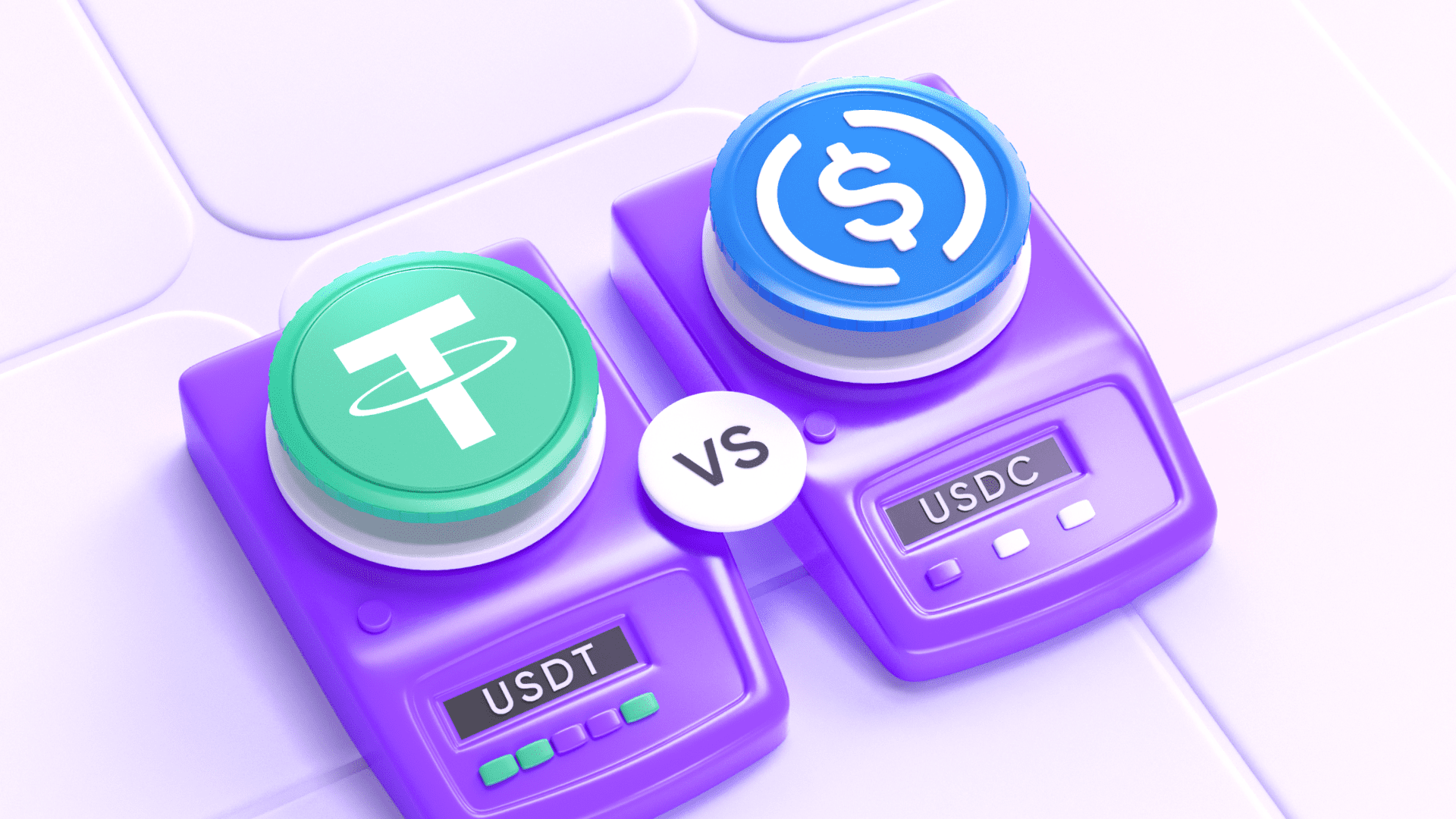
Cryptocurrency transactions are legal in Russia and many other countries, but the regulation in this domain, including P2P trading, is not clearly defined. As a result, different countries have different interpretations of laws and taxes related to cryptocurrency.
Let’s take a look at how P2P crypto trading is regulated in Russia, Kazakhstan, Belarus, and some other countries.
Russia
Legally cryptocurrency in Russia is a form of property. You can exchange, store, and mine cryptocurrency but can’t pay for goods and services.
Law: The regulatory law governing digital financial assets, digital currency, and amendments to certain legislative acts in Russia is numbered № 259-FL and issued on January 1, 2021.
Tax: You are only required to pay tax on the income earned from the sale of cryptocurrency, at a rate of 13%. However, if the amount exceeds 5 million rubles per year, the tax rate increases to 15%. For example, if you buy a cryptocurrency for 30,000 rubles and sell it for 40,000 rubles, the tax would be 13% of 10,000 rubles.
It is legal to engage in crypto arbitrage using foreign accounts, as long as you comply with specific legal requirements.
Belarus
You cannot use cryptocurrency to pay for goods and services. However, you can own, mine, store, exchange, and sell cryptocurrencies for Belarusian rubles and foreign currency for personal use.
Law: Decree M8 “On the development of the digital economy” was issued on December 21, 2017.
Tax: Individuals are exempt from income tax, and all taxpayers are exempt from VAT until January 1, 2025.
P2P trading restriction: According to clause 2.6 of the mentioned law, you are not allowed to assist others in peer-to-peer trading. However, if you trade cryptocurrency on your own, without involving other individuals or legal entities, it is not considered a business activity and is permitted.
Individuals can trade cryptocurrencies on any available platforms, while legal entities can only trade through residents of Hi-Tech Park. Only licensed residents of Hi-Tech Park are allowed to engage in cryptocurrency exchange as a business activity.
Ukraine
Currently, Ukraine is in the process of preparing a new bill on virtual assets called MiCA, based on European standards. However, before implementing this bill, the authorities need to make changes to the tax code. Cryptocurrency is not a legal form of payment in Ukraine, but you can exchange it, store it, and mine. Still, conducting cryptocurrency transactions will require a license, with two exceptions:
- If the service operates with non-custodial wallets.
- If the service operates on smart contracts or a decentralized protocol through which internal transfers are made.
If you act as an intermediary by publicly posting assets, you will need to obtain a license.
Law: The Virtual Assets Act, September 8, 2021.
Tax: For individuals, income earned from the sale of crypto is subject to a tax rate of 18%, along with an additional 1.5% military fee. The tax must be paid on the entire amount received from the sale of the cryptocurrency.
Kazakhstan
Similar to the countries mentioned earlier, cryptocurrency in Kazakhstan is considered a property rather than a means of mutual settlement. The activities of cryptocurrency exchange, storage, mining, and trading are permitted.
Law: The regulatory law titled “On amendments and additions to some legislative acts of the Republic of Kazakhstan on the regulation of digital technology” was issued on June 25, 2020, under the number № 347-VI.
Tax: If an individual sells a digital asset (cryptocurrency) outside of Kazakhstan, they are required to pay tax on the entire amount of the transaction. Starting from January 1, 2023, a tax rate of 10% will be introduced on income received from the sale of digital assets (cryptocurrency) at a higher price.
United States (U.S.)
In the U.S., crypto is not a legal tender but a property. However, certain cryptocurrencies may be classified as securities. To engage in cryptocurrency exchange, storage, mining, and trading activities, individuals or entities must obtain an MSB (Money Services Business) license from FinCEN (Financial Crimes Enforcement Network).
Regulation authority: The Security and Exchange Commission (SEC) oversees the regulation of cryptocurrency activities in the U.S.
Tax: Profits generated from cryptocurrency transactions are classified as capital gains for individuals who purchase goods using cryptocurrencies. For miners, the profits are treated as business income.
China
There is a common belief that cryptocurrency is banned in China, but this is not entirely accurate. While there are numerous restrictions and a ban on domestic transactions, owning cryptocurrency is not prohibited. As a result, many traders in China engage in cryptocurrency trading outside of the country without violating the law.
Regulatory authority: The People’s Bank of China serves as the regulatory authority overseeing cryptocurrency-related matters in the country.
Tax: In China, there is no specific taxation on cryptocurrencies since all financial transactions involving cryptocurrencies are outlawed within the country.
Argentina
In Argentina, cryptocurrency is not legally recognized as money but can be a form of payment. Laws don’t regulate the activities of cryptocurrency exchange, storage, mining, and trading.
Regulatory authority: The regulatory authority overseeing crypto-related matters in the country is the National Securities Commission (CNV).
Tax: For residents of Argentina, personal income tax is applicable on income received from the sale of virtual currency. The tax rate is 15% of the transaction involving cryptocurrency. Regarding value-added tax (VAT), the rules may vary across different provinces in Argentina.
Georgia
Although cryptocurrency is not a legal means of payment, Georgia is generally lenient towards digital assets.
Law: There is no specific regulatory law governing crypto in Georgia.
Tax: In terms of taxation, the income earned by individuals from cryptocurrency operations is exempt from personal income tax. Additionally, income derived from the sale and exchange of cryptocurrency to national or foreign currency is exempt from value-added tax (VAT).
Armenia
Digital assets, including cryptocurrencies, are not currently regulated by specific laws. However, individuals are allowed to store and exchange cryptocurrencies, including through peer-to-peer (P2P) services.
Regulatory authority or law: Currently, there is no regulatory authority or specific law for digital assets in Armenia.
Tax: There are no specific tax regulations or obligations in Armenia related to cryptocurrency transactions.
Uzbekistan
In Uzbekistan, cryptocurrency is not a legal means of payment. However, cryptocurrency exchange, storage, mining, and trading activities are permitted, but only through authorized exchanges and mining pools.
Regulatory law: “On measures to develop the digital economy in the Republic of Uzbekistan” № PP-3832, dated July З, 2018.
Tax: All transactions involving virtual currencies are exempt from taxes in Uzbekistan. It means there are no specific tax obligations related to cryptocurrency transactions in the country.
The current state of cryptocurrency
Regulation varies from country to country. Cryptocurrency is generally not recognized as a legal tender in most countries, but the specific rules and regulations surrounding its use, exchange, storage, mining, and trading can differ significantly.
It’s important to stay informed about the legal and regulatory frameworks in your country or the country where you plan to engage in crypto-related activities, as the laws can change over time. We talk about crypto, ways to transfer funds to other countries, and protection measures against scammers.
Read our blog, be informed, and may the profit be with you!






